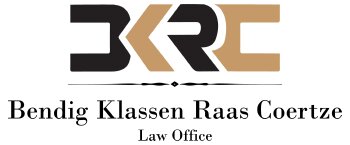Best Faith-Based Law Lawyers in Prince Albert
Share your needs with us, get contacted by law firms.
Free. Takes 2 min.
List of the best lawyers in Prince Albert, Canada
About Faith-Based Law in Prince Albert, Canada
Faith-Based Law in Prince Albert, Canada, involves navigating the intersection of religious beliefs and legal obligations. This area of law may address how religious freedom and practices are protected under Canadian law, the accommodation of religious practices in various institutions, and the legal implications of religiously motivated decisions within family and property matters. Given Prince Albert's cultural diversity, understanding both local community practices and broader Canadian laws ensures that individual rights and responsibilities are maintained in line with faith-based principles.
Why You May Need a Lawyer
There are various situations in which you might require legal assistance in Faith-Based Law. These include resolving disputes where religious practices intersect with civil law, such as in family disputes where religious principles play a role in decision-making, navigating employment rights related to religious observances, or managing estates and trusts with faith-based instructions. Additionally, understanding and advocating for religious accommodations at work, in education, and in other institutional settings often benefits from professional legal counsel.
Local Laws Overview
Prince Albert operates under the provincial laws of Saskatchewan, which in turn adhere to Canadian federal laws. The Charter of Rights and Freedoms guarantees freedom of religion; therefore, any local regulations are framed within this context. Key areas of concern include human rights protections that prohibit discrimination based on religion, guidelines for religious accommodations in various sectors, and family law principles as they intersect with religious customs. Local bylaws may also influence the operation of faith-based organizations and places of worship.
Frequently Asked Questions
What is the role of the Charter of Rights and Freedoms in Faith-Based Law?
The Charter guarantees freedom of conscience and religion, ensuring citizens can practice their faith without interference, as long as public safety and other legal obligations are met.
Can faith-based principles override local and national laws in Canada?
No, while individuals can practice their religion, Canadian law prevails in situations where religious practices conflict with public policy and safety.
How are faith-based family disputes handled legally?
Family laws in Canada generally apply, but considerations for religious practices may be accommodated through mediation or within judicial discretion when reasonable.
What legal rights do I have if I face discrimination due to my faith?
The Saskatchewan Human Rights Code, in conjunction with Canadian law, prohibits discrimination based on religious beliefs, and legal recourse is available through human rights tribunals.
Are there specific legal requirements for establishing or operating a faith-based organization?
Yes, organizations must adhere to federal and provincial regulations for non-profits or charitable organizations, even when faith-based.
Is legal assistance available for religious accommodation in the workplace?
Yes, legal advice can help you understand your rights and negotiate accommodations with your employer under human rights laws.
How can disputes over a will or estate with religious clauses be resolved?
A lawyer experienced in both estate and faith-based law can assist in interpreting clauses within the bounds of Canadian law.
What role does faith play in child custody cases?
While the child's best interests are the primary factor, religious upbringing can be considered if both parents agree or the court finds it in the child's best interests.
Does Canadian law obligate schools to provide religious accommodations?
Under human rights legislation, schools are generally required to provide reasonable accommodations for religious observations.
Where can I seek mediation if a faith-based conflict arises within a community?
A lawyer can provide guidance, and sometimes religious councils or community mediators offer informal resolution processes.
Additional Resources
For more information, the Prince Albert Multicultural Council and the Saskatchewan Human Rights Commission can provide guidance on religious rights. Organizations like the Canadian Council of Christian Charities and national faith-based legal associations offer resources and support. Additionally, consulting faith leaders and local interfaith councils can provide community-specific insights aligned with legal advice.
Next Steps
If you need legal assistance in Faith-Based Law, begin by consulting with a lawyer experienced in religious matters and Canadian law. Gathering documentation and evidence related to your situation will aid your lawyer in providing informed guidance. Local bar associations can offer referrals to qualified legal professionals, and many law firms offer initial consultations to outline your legal options and next steps.
Lawzana helps you find the best lawyers and law firms in Prince Albert through a curated and pre-screened list of qualified legal professionals. Our platform offers rankings and detailed profiles of attorneys and law firms, allowing you to compare based on practice areas, including Faith-Based Law, experience, and client feedback.
Each profile includes a description of the firm's areas of practice, client reviews, team members and partners, year of establishment, spoken languages, office locations, contact information, social media presence, and any published articles or resources. Most firms on our platform speak English and are experienced in both local and international legal matters.
Get a quote from top-rated law firms in Prince Albert, Canada — quickly, securely, and without unnecessary hassle.
Disclaimer:
The information provided on this page is for general informational purposes only and does not constitute legal advice. While we strive to ensure the accuracy and relevance of the content, legal information may change over time, and interpretations of the law can vary. You should always consult with a qualified legal professional for advice specific to your situation.
We disclaim all liability for actions taken or not taken based on the content of this page. If you believe any information is incorrect or outdated, please contact us, and we will review and update it where appropriate.








